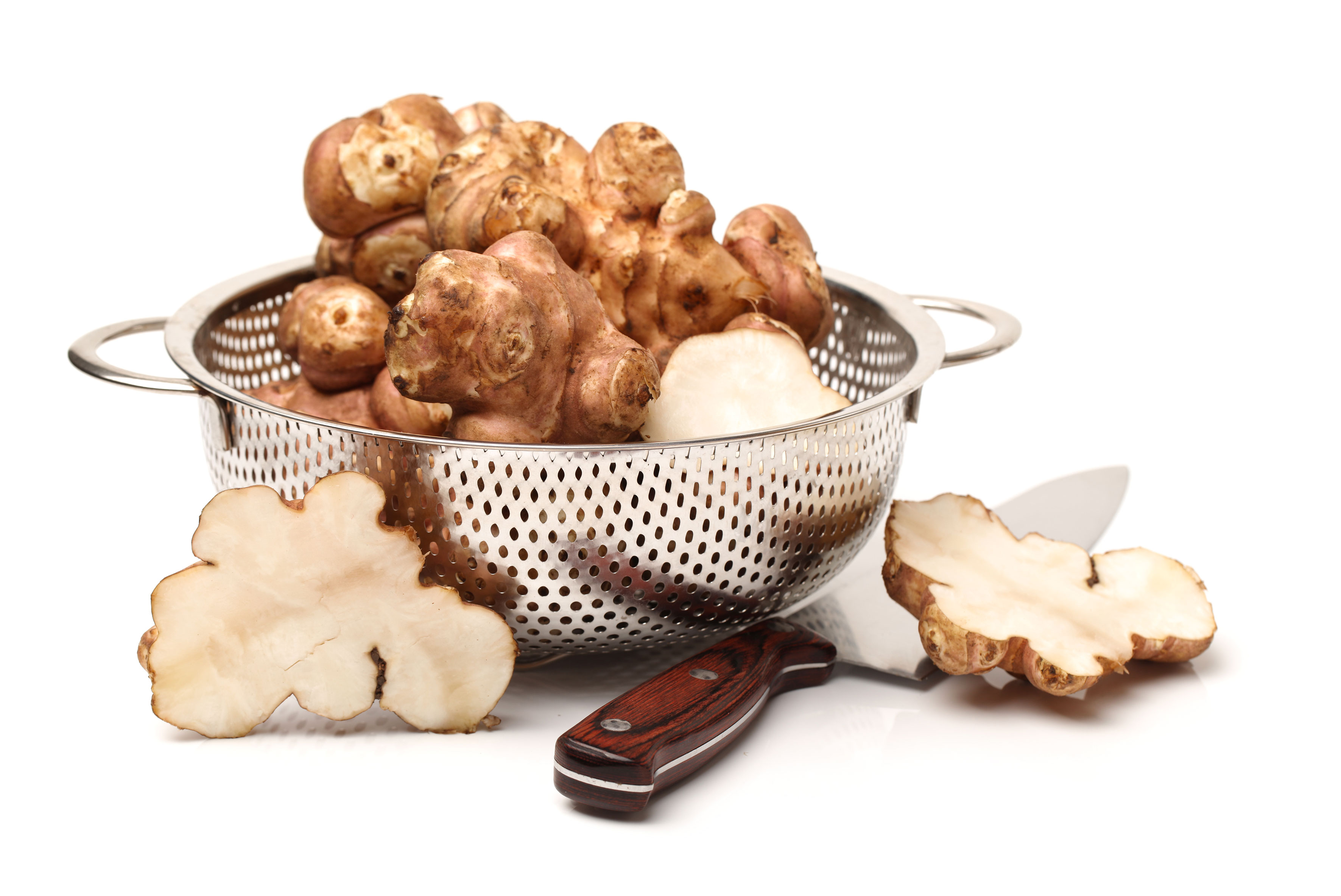

Jerusalem artichokes (Helianthus tuberosus Linnee) are a perennial herbaceous plant of the Asteraceae family from North America and introduced in Europe from the 17th century, where they started to grow spontaneously, almost to the point of turning into weeds. It has been growing in Italy for hundreds of years in almost all regions, from north to south. This is indeed a plant with a good tolerance in terms of climatic conditions: it can withstand cold weather, dryness and does not require particularly rich types of soil.
This ‘sunflower artichoke’ (as it is often called due to its appearance, very similar to common sunflowers, as they are part of the same botanical family) develops underground stolons forming a tuber reminiscent of potatoes. The colour of this tuber ranges from light brown to white, from red to purple. It has therapeutic properties recognised many centuries ago for which it has been acclaimed: according to folk traditions, the leaves of the plant were helpful for instance in case of joint pain and broken bones. It was immediately used in the kitchen too, combined with potatoes or artichokes (indeed its taste is reminiscent of a mix of the two), added to vegetable purées and soups to increase its nutritional properties and give the feeling of being full for longer. It was mentioned, already in the 1800s, among the basic ingredients to make bagna càuda, a typical gastronomic speciality of the Piedmont region.

But why speak of Jerusalem artichokes today?
Because it is one of the vegetables still ‘looked down on’ too much, perhaps for its hardly attractive appearance, maybe because of the prejudice of the unpleasant ‘collateral effects’ it can cause (wind, bloating). Actually, if taken in the right amounts, this fantastic tuber is an excellent ally in terms of kidney purification and helps you keep a clean and healthy gut.
Consisting of 75% water, 3% protein, 15% carbohydrates, with more potassium than bananas, with a good intake of vitamin C and A, it is mostly considered for its considerable inulin content. This polysaccharide, which acts as a backup material for the plant world, is a real natural prebiotic for humans: as such, it nourishes our bacterial flora, namely by stimulating the growth of Bifidobacteria at the expense of pathogenic strains. Inulin acts like soluble fibre and thereby to keep lipid levels (cholesterol and triglycerides) under control. It is also very useful in regulating glucose levels: recent studies have confirmed that its integration is helpful in patients prone to diabetes. Given its low glycaemic index, Jerusalem artichokes can definitely be added to the diet of a person with sugar hypersensitivity.
In the fields from about October to March, they are easy to clean (brush them well under running water).
There are no excuses for not taking advantage of this super-healthy and tasty autumnal gift, using it as a condiment for pasta and risotto, as a side dish in simple roasted vegetables or sautéed with garlic and parsley, but also uncooked with oil, lemon, a pinch of salt and pepper!
And enjoy your meal!
Elena Agnoletto
Therapist and naturopath
www.facebook.com/elenahealthtutor/
www.instagram.com/elenahealthtutor/










Comments